Search Results
Showing results 41 to 60 of 64
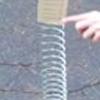
Spring Scale Engineering
Source Institutions
In this activity, learners explore how spring scales work and how they are used for non-exact weight measurement.

What Do You Know About Microbes?
Source Institutions
This is a series of quick activities/demos and pre-assessment tools that evaluate learners' current understanding of microbes and introduce them to basic information about microbes.
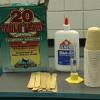
That's the Way the Ball Bounces: Level 1
Source Institutions
In this activity, learners prepare four polymer elastomers and then compare their physical properties, such as texture, color, size, and bounce height.
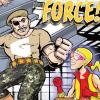
Doughy Physics
Source Institutions
Learners drop two different masses of play dough and observe how long it takes them to hit the ground.
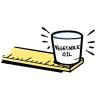
Comparing the Density of Different Liquids
Source Institutions
Learners carefully pour vegetable oil, water, and corn syrup in any order into a cup and discover that regardless of the order they are poured, the liquids arrange themselves in layers the same way.

Get the Porridge Just Right
Source Institutions
Learners set up three different bowls, each with a different mass of oatmeal. Learners monitor the temperature of the oatmeal and find that larger masses take longer to cool.
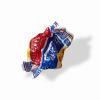
Wrap It Up!
Source Institutions
In this Energy and Environment activity (page 9 of the PDF), learners calculate the mass of a piece of gum, compare it to the mass of the gum's packaging, and then create a bar graph of the results.

Balanced Budget Chemistry
Source Institutions
In this activity, learners balance chemical equations and discover the law of conservation of mass. Learners use coins to model molecules to balance the equations.
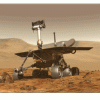
Design a Lunar Rover!
Source Institutions
In this team design challenge (page 2-10 of PDF), learners design and build a model of a Lunar Transport Rover that will carry equipment and people on the surface of the Moon.
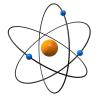
Scaling an Atom
Source Institutions
In this activity, learners make a scale model of an atom to see how big or how small an atom is compared to its nucleus. Learners will realize that most of matter is just empty space!
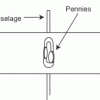
Lift Experiment
Source Institutions
In this experiment, learners investigate how the size of a wing affects lift. Learners count the number of pennies an egg crate plane wing can hold until the plane will no longer fly.

Falling Feather
Source Institutions
In this physics activity, learners recreate Galileo's famous experiment, in which he dropped a heavy weight and a light weight from the top of the Leaning Tower of Pisa to show that both weights fall
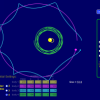
My Solar System
Source Institutions
In this online activity, learners build their own system of heavenly bodies and watch the gravitational ballet.
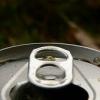
Having a Gas with Cola
Source Institutions
In this activity, learners measure the amount of carbon dioxide in a carbonated drink.
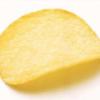
Ship the Chip
Source Institutions
In this activity, learners explore engineering package designs that meet the needs of safely shipping a product.
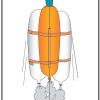
Heavy Lifting
Source Institutions
In this activity, learners work in NASA teams to build balloon-powered rockets using identical parts and compete to launch the greatest number of paper clips to "space" (the ceiling).
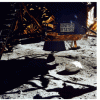
Design a Landing Pod!
Source Institutions
In this team design challenge (page 11-18 of PDF), learners design and build a Landing Pod for a model Lunar Rover (previously built in activity on page 1-10 of PDF).
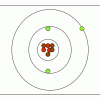
M&M® Model of the Atom: Edible Subatomic Particles
Source Institutions
In this activity, learners use colored candy to represent subatomic particles and make a model of an atom (Bohr model).
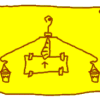
Make a Balance / Scale
Source Institutions
In this activity, learners create a kind of balance device using a wire coat hanger, some string, and paper cups.
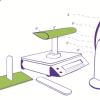
Airplane Wing Investigation
Source Institutions
This activity (located on page 3 of the PDF under GPS: Balloon Fiesta Activity) is a full inquiry investigation into Bernoulli’s principle and airplane wings.
